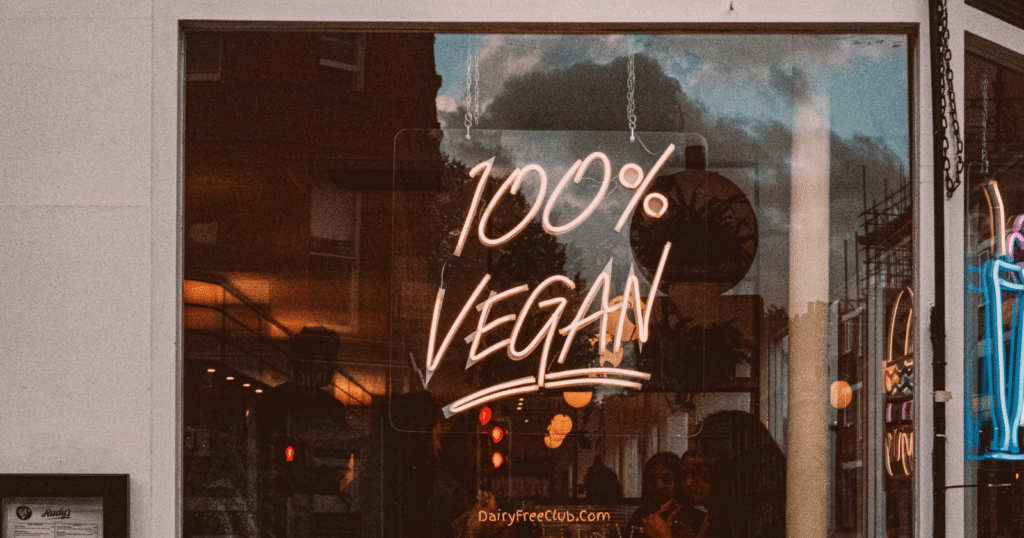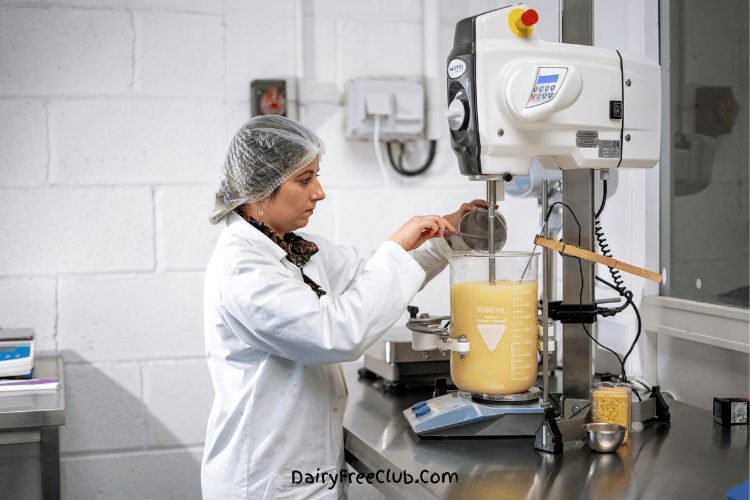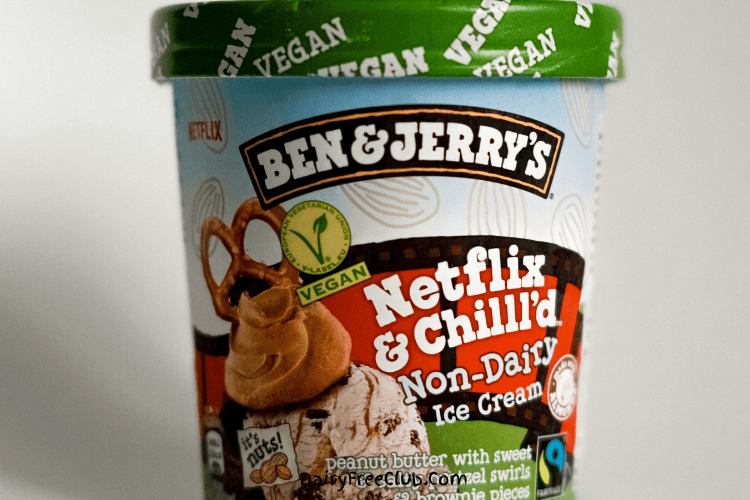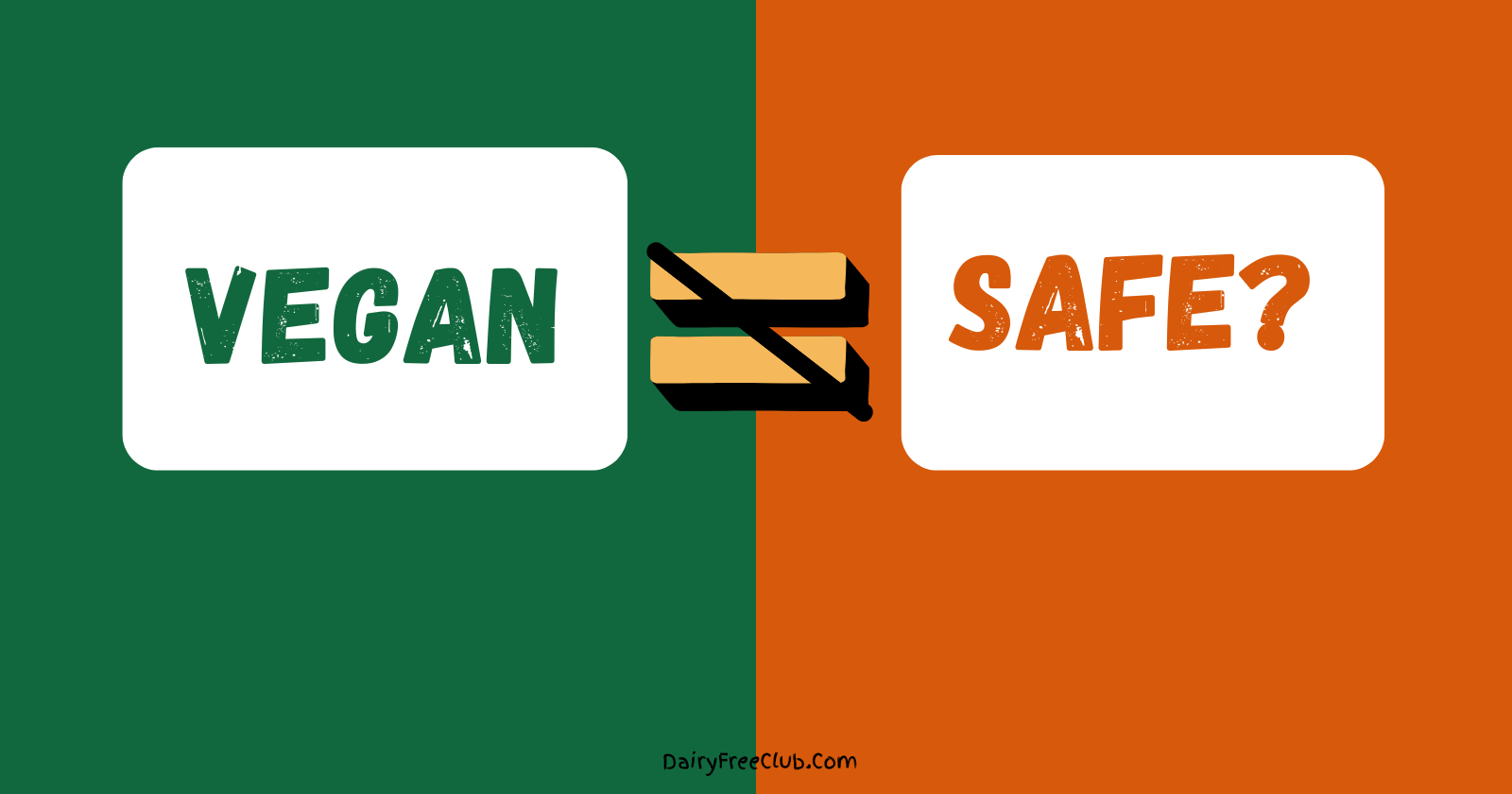Wondering, is vegan food safe for dairy allergies?
Many people assume that because vegan products contain no animal ingredients, they’re automatically safe for those with dairy allergies.
But the reality is a bit more complicated. Some vegan foods now include lab-grown milk proteins—like casein and whey—that aren’t from animals but can still trigger allergic reactions.
That’s why understanding what’s really in your food is more important than ever.
Contents
Is Vegan Food Safe for Dairy Allergies?

The short answer is: not always. “Vegan” just means a product has no ingredients directly from animals. It does not always mean it’s safe for people with dairy allergies.
Some new foods use lab-grown milk proteins, like casein and whey, made without cows.
Even though these proteins aren’t from animals, your body can react to them just like to regular dairy if you’re allergic, because the proteins are structurally the same.
What Are Lab-Grown Milk Proteins?

Lab-grown milk proteins are basically the same proteins you find in regular cow’s milk, but they’re made in a lab instead of coming from animals.
Scientists use a process called precision fermentation, where they take the genes that produce milk proteins (like casein and whey) and insert them into microorganisms like yeast. These microbes then create the milk proteins as they grow in a controlled setting.
These proteins can be combined with fats and other ingredients to make milk that closely matches the taste, texture, and nutrition of traditional dairy — but without involving animals.
This approach offers a way to produce real milk proteins with less environmental impact and fewer ethical concerns compared to conventional dairy farming. It’s also faster and more efficient, making it a promising option for the dairy industry’s future.
Examples of Vegan Products That May Contain Lab-Grown Milk Proteins

You might see more vegan products with lab-grown milk proteins in stores now, and it’s important to know what these are, especially if you have dairy allergies. Here are some types of vegan products that could use these lab-grown milk proteins:
- Ice cream
- Chocolate bars
- Cheese
- Protein shakes or powders
- Yogurt
Popular brands like Perfect Day, Remilk, and Imagindairy use these proteins in their products. You might see ice cream or cream cheese on shelves marked as “animal-free dairy,” but they still have milk proteins made in a lab.
How to Stay Safe?

The best thing you can do to stay safe if you have a dairy allergy is to always read the ingredient list. Some vegan or plant-based foods can have lab-grown milk proteins that might still trigger an allergic reaction.
Do not assume a “vegan,” “dairy-free,” or “plant-based” label means the product is safe for you. These terms just mean there’s no dairy from animals, but they don’t guarantee it’s free from all milk proteins.
Here is a list of keywords to look for on products that can trigger a dairy allergy:
- Milk protein
- Casein
- Whey
- Beta-lactoglobulin
- Animal-free dairy
In the United States and some other countries, if a product contains lab-grown milk proteins, the label is required to say “contains milk” in the allergen statement, even if the protein is not from a cow. However, labeling may not be as clear in all countries or on all products, so always check the ingredients carefully.
If a product mentions “lab-grown,” “animal-free,” or “fermentation-derived” milk proteins, or uses one of the ingredient names above, it’s best to avoid it unless you have checked with your doctor or allergist. When in doubt, skip it.
Tips to Buy Products Free of Lab-Grown Milk Proteins
To avoid both traditional dairy and lab-grown (animal-free) dairy proteins, look for these labels and tips:
- “100% Plant-Based” or “Plant-Based”: Products with these labels are typically free of any animal-derived ingredients, including lab-grown dairy proteins.
- “Free from Milk Proteins” or “Milk Protein-Free”: Some products explicitly state they contain no milk proteins, whether animal-derived or lab-grown.
- Certified Vegan: While not foolproof, certified vegan labels usually exclude animal-derived ingredients, including lab-grown dairy proteins. But always check the ingredient list, as standards may vary.
- Allergen Statements: Check for clear allergen labeling indicating the absence of milk or milk proteins.
- Read Ingredient Lists Carefully: Watch out for terms like casein, whey, lactalbumin, or any mention of fermentation-derived proteins, which might indicate lab-grown dairy proteins.
Since labeling for lab-grown dairy proteins is not yet standardized, the safest approach is to choose clearly plant-based products and verify ingredient lists or contact manufacturers if in doubt.
How Lab-Grown Milk Proteins Are Regulated (and Why It Matters)
As already stated above, in the United States, the FDA requires that lab-grown milk proteins be declared as “milk” in the ingredients and allergen statement, even if they’re not from animals. (FDA Guidance)
However, in other countries, labeling may not be as clear or standardized yet. This means companies could use these proteins in products labeled “vegan” or “dairy-free” without always making it obvious that they contain milk proteins made in a lab.
For people with dairy allergies, this lack of clear rules in some places makes it hard to know what’s really safe to eat.
Regulators are still figuring out how to handle these new ingredients, so it’s important to stay informed and always check ingredient lists carefully until labeling becomes more consistent.
Final Words!
Navigating dairy allergies in today’s world of vegan and lab-grown foods can be tricky. “Vegan” or “dairy-free” labels don’t always tell the whole story, especially with the rise of lab-grown milk proteins that can still cause allergic reactions.
The best way to stay safe is to read ingredient lists carefully, check for allergen statements (such as “contains milk”), and watch for key terms like casein, whey, and “animal-free dairy.” When in doubt, choose products that clearly state they’re free from all milk proteins, or contact the manufacturer directly.
Until labeling rules become more consistent everywhere, staying informed and cautious is the key to avoiding allergic reactions.

I’m Simone, and I’m here to make your dairy-free journey simple, enjoyable, and delicious! Whether you’re lactose intolerant, have a dairy allergy, or are exploring a plant-based lifestyle, Dairy Free Club is your go-to resource for finding the best dairy-free alternatives.
Join me as we uncover the tastiest dairy-free products, easy meal ideas, and expert tips to help you navigate a dairy-free lifestyle with confidence.

